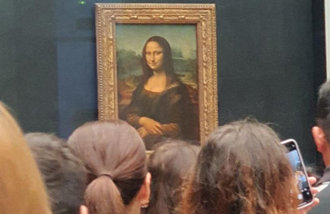Korea-EU FTA Talks to Resume in Earnest
Korea-EU FTA Talks to Resume in Earnest
Posted July. 31, 2008 08:48,
The collapse of the World Trade Organizations Doha Development Agenda negotiations, which were expected to be finalized, will likely give traction to Koreas free trade agreement with the European Union. The leaders of the European Union will have to seek bilateral trade deals in place of the suspended multilateral trade deal. Once the FTA with the European Union is concluded, Korea will be able to hold an upper hand in international trade and push the U.S. Congress for early ratification of the FTA between Korea and the United States. As a result, experts forecast that the European Union will most likely make a big deal about its FTA with Korea, which has been delayed due to a handful of contentious issues.
○ Failure of the DDA turns attention back to the FTA
Korea and the European Union in May agreed to finalize the bilateral FTA by the end of the year. However, no noticeable progress has been made. In the beginning, the European Union hurried on reaching an FTA with Korea due to concerns of losing its market dominance in Korea to the United States, which was also pushing for an FTA with Korea. However, the European Union took a step back as the ratification of the Korea-U.S. FTA was postponed. In addition, as the European Union decided to take the initiative in the DDA negotiations, the FTA with Korea had to be put on the back burner.
The situation, however, has dramatically changed since Tuesday, four days after the DDA negotiations which had produced a breakthrough for the first time in seven years collapsed.
A final agreement could not be reached due to disagreement between advanced and developing countries on the conditions of easing a special safeguard mechanism for developing countries during a WTO ministerial meeting. Experts believe that the details of the Doha Development Agendas tentative agreement will not be dramatically changed, but that it will take another two to three years to finalize the agreement due to delays caused by the U.S. presidential election in November 2008, the retirement of WTO Director-General Pascal Lamy, reshuffle of the leadership of the European Union in November 2009, and general elections in India in May 2009.
The government believes that the European Unions leadership will be more aggressive in concluding an FTA with Korea as they are now under greater pressure to produce tangible results in bilateral talks in order to make up for their failure in the multilateral trade talk.
As the European Union is in competition with the United States over the conclusion of the FTA with Korea, Seoul should take the initiative in speeding up the Korea-EU FTA talks, which will, in turn, add pressure on the U.S. Congress over the ratification of the FTA with Korea, a foreign ministry official said.
○ Disagreements over technical standards for automobiles
In order to find a breakthrough in the Korea-EU FTA, the two sides must narrow down differences over some key issues. The European Union demands that Korea apply its own technical standards for automobiles exported to Korea as the cost of production jumps if the Korean standards are applied to its cars. However, Korea is opposed to the demand, saying that the Korea-U.S. FTA allows U.S. auto manufacturers with annual sales of less than 6,500 cars a year in Korea to use their own technical standards.
The two sides have also not narrowed their differences over country of origin labeling rules. A product designed in Italy, manufactured in Eastern Europe, and sold by a German company is recognized as a product of the European Union.
However, Korea, which manufactures many of its products in other countries, faces disadvantages as the products will be exempted from tariff concessions. Due to this reason, Seoul is demanding that the European Union recognize some of its products made outside Korea as Korean products.
○ Concessions to reach an agreement
The European Union, which has a GDP of 14 trillion dollars and a population of 500 million, is the worlds biggest market. The bilateral FTA will dramatically increase Koreas export to the market as most of Koreas key export items are currently subject to heavy tariffs.
Benefits from the market opening resulting from the Korea-EU FTA will be far greater than the losses from some products, said Kim Hyeong-ju, an economist at the LG Economic Research Institute. The ultimate goal of the FTA is opening, not protection. Therefore, the government should take a turnaround approach and put emphasis on market opening.
The United States and the European Union have been checking each other to have an upper hand over the FTA, said Jeong In-gyo, an economics professor at Inha University. We should take advantage of the situation.
In addition, Seoul has decided to push bilateral trade deals with other countries. It is expected to reach the Comprehensive Economic Partnership Agreement with India by the end of the year.
We are in the process of finalizing the text for the agreement, which has been reached after 10 rounds of official negotiations with India. We are now discussing some remaining contentious issues, Ahn Ho-yeong, deputy minister for trade, told the press on Wednesday. Our goal is reaching the agreement within the year.
havefun@donga.com bae2150@donga.com







